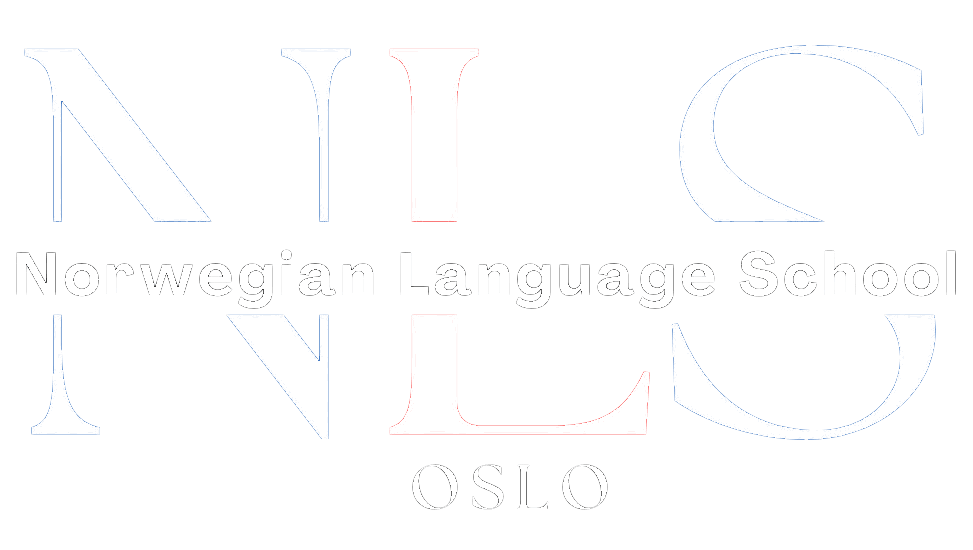

20 Key Phrases for Renting and Real Estate in Norwegian
The Norwegian rental market is a complex and competitive landscape that requires a thorough understanding before embarking on the search for a rental property. With high demand and limited supply, it is crucial to have a comprehensive knowledge of the rental market in order to secure a suitable and affordable rental property. This article aims to provide an in-depth understanding of the Norwegian rental market, including the types of rental properties available, average rental prices in different cities, factors that affect rental prices, and tips for finding a rental property.
Table of Contents
ToggleKey Takeaways
- Understanding the Norwegian rental market:
- Norway has a highly regulated rental market with strict tenant protections.
- Rental prices in Norway are generally high, especially in major cities.
- Top tips for finding a rental property in Norway:
- Start your search early and be prepared to compete with other renters.
- Use online resources and social networks to find available properties.
- The importance of knowing rental laws in Norway:
- Tenants have strong legal protections in Norway, including limits on rent increases and eviction protections.
- Landlords must follow strict rules for security deposits and maintenance of rental properties.
- How to negotiate rent in Norway:
- Negotiating rent is possible in Norway, but it’s important to do your research and be prepared to make a strong case for a lower price.
- Consider factors like the length of the lease, the condition of the property, and the local rental market when negotiating.
- The pros and cons of renting vs. buying in Norway:
- Renting in Norway can be expensive, but it offers flexibility and avoids the high upfront costs of buying a home.
- Buying a home in Norway can be a good investment, but it requires a significant financial commitment and may limit your flexibility.
Understanding the Norwegian Rental Market
In Norway, there are various types of rental properties available, ranging from apartments and houses to student housing and shared accommodation. The availability and prices of these rental properties vary depending on the location. For example, in major cities like Oslo and Bergen, the demand for rental properties is high, resulting in higher rental prices compared to smaller towns or rural areas.
The average rental prices in Norway also vary depending on the city. According to recent data, the average monthly rent for a one-bedroom apartment in Oslo is around 12,000 NOK (approximately $1,400), while in Bergen it is around 9,000 NOK (approximately $1,050). These prices can fluctuate based on factors such as location, size, amenities, and demand.
Several factors influence rental prices in Norway. One of the main factors is location. Properties located in popular neighborhoods or city centers tend to have higher rental prices compared to those in less desirable areas. Other factors include the size of the property, its condition, proximity to amenities such as schools and public transportation, and the overall demand for rental properties in the area.
Top Tips for Finding a Rental Property in Norway
When searching for a rental property in Norway, there are several strategies that can increase your chances of finding a suitable place. Firstly, researching online rental listings is a great way to get an overview of the available properties in your desired location. Websites such as Finn.no and Hybel.no are popular platforms for finding rental properties in Norway.
Networking with locals can also be beneficial in finding a rental property. By reaching out to friends, colleagues, or acquaintances who live in the area, you may gain access to insider information about available properties that may not be listed online.
Working with a real estate agent can also simplify the process of finding a rental property. Real estate agents have access to a wide range of properties and can help match your preferences and budget with suitable options. They can also assist with negotiations and ensure that all necessary paperwork is completed correctly.
Lastly, it is important to be prepared with the necessary documents when applying for a rental property in Norway. Landlords typically require proof of income, references from previous landlords, and a copy of your credit report. Having these documents ready in advance can help expedite the application process and increase your chances of securing a rental property.
The Importance of Knowing Rental Laws in Norway
Understanding the rental laws in Norway is crucial for both tenants and landlords. Norwegian rental laws provide guidelines and regulations that protect the rights and responsibilities of both parties.
In Norway, tenants have several rights, including the right to a safe and habitable living environment, protection against unfair eviction, and the right to privacy. Tenants are also responsible for paying rent on time, maintaining the property in good condition, and adhering to any rules or regulations set by the landlord.
Landlords in Norway have certain obligations as well. They are responsible for maintaining the property in good condition, ensuring that it meets health and safety standards, and providing necessary repairs when needed. Landlords are also required to give proper notice before entering the rental property and cannot increase the rent arbitrarily.
By understanding these rental laws, tenants can ensure that their rights are protected and landlords can fulfill their obligations accordingly.
How to Negotiate Rent in Norway
Negotiating rental prices in Norway can be challenging, especially in areas with high demand and limited supply. However, there are several tips that can help increase your chances of negotiating a lower rent.
Firstly, it is important to do thorough research on the rental market in your desired location. By understanding the average rental prices in the area, you can determine whether the asking price is fair or if there is room for negotiation.
When negotiating, it is helpful to highlight any positive aspects that may make you a desirable tenant. For example, if you have a stable income, good credit history, or references from previous landlords, these factors can work in your favor during negotiations.
Another tactic is to offer a longer lease term or to pay several months’ rent upfront. This can provide landlords with a sense of security and may make them more willing to negotiate on the rental price.
The Pros and Cons of Renting vs. Buying in Norway

Renting and buying both have their advantages and disadvantages in Norway. Renting provides flexibility and allows for easier relocation if needed. It also eliminates the responsibility of property maintenance and repairs, which can be costly and time-consuming.
On the other hand, buying a property in Norway can be a long-term investment that provides stability and potential financial gain. Homeowners have the freedom to customize their living space and build equity over time. However, buying a property requires a significant upfront investment and comes with additional costs such as property taxes and maintenance expenses.
Ultimately, the decision between renting and buying depends on individual circumstances, financial goals, and personal preferences.
Finding the Right Real Estate Agent in Norway
Finding the right real estate agent is crucial when navigating the Norwegian rental market. A good real estate agent can provide valuable insights, access to a wide range of properties, and expert guidance throughout the rental process.
When choosing a real estate agent, it is important to look for certain qualities. Firstly, the agent should have a good understanding of the local rental market and be knowledgeable about the specific area you are interested in. They should also have excellent communication and negotiation skills, as well as a strong network of contacts in the industry.
It is also important to ask the right questions when choosing a real estate agent. Inquire about their experience, track record, and any additional services they provide. It is also helpful to ask for references from previous clients to get a better understanding of their professionalism and reliability.
Key Phrases for Communicating with Landlords in Norway
When communicating with landlords in Norway, it is helpful to be familiar with common phrases and etiquette. Here are some key phrases that can be useful:
– “Hei, jeg er interessert i å leie leiligheten.” (Hello, I am interested in renting the apartment.)
– “Kan du gi meg mer informasjon om leieprisen og betingelsene?” (Can you provide me with more information about the rental price and conditions?)
– “Er det mulig å avtale en visning?” (Is it possible to arrange a viewing?)
– “Jeg vil gjerne signere en leiekontrakt.” (I would like to sign a rental agreement.)
– “Kan du gi meg beskjed om eventuelle vedlikeholdsarbeid som må gjøres?” (Can you let me know about any maintenance work that needs to be done?)
When communicating with landlords, it is important to be polite and professional. Responding promptly to emails or phone calls and being respectful of their time can help establish a positive relationship.
Essential Vocabulary for Viewing Rental Properties in Norway
When viewing rental properties in Norway, it is helpful to be familiar with key vocabulary related to rental properties. Here are some essential terms:
– Leilighet: Apartment
– Hus: House
– Soverom: Bedroom
– Stue: Living room
– Kjøkken: Kitchen
– Bad: Bathroom
– Balkong: Balcony
– Hage: Garden
– Møblert: Furnished
– Utleier: Landlord
Useful phrases for viewing rental properties include:
– “Kan jeg se soverommet?” (Can I see the bedroom?)
– “Hva er inkludert i leien?” (What is included in the rent?)
– “Er det parkeringsplass tilgjengelig?” (Is there parking available?)
– “Hvor langt er det til nærmeste offentlige transport?” (How far is it to the nearest public transportation?)
Understanding the Norwegian Housing Market: Trends and Predictions
The Norwegian housing market has experienced significant growth in recent years, with rising property prices and increased demand. However, there are currently signs of a slowdown in the market, with experts predicting a more stable and balanced housing market in the future.
One of the current trends in the Norwegian housing market is the increasing popularity of urban living. Young professionals and families are opting for city living, leading to higher demand for rental properties in major cities like Oslo and Bergen.
Another trend is the focus on sustainability and energy efficiency in new construction projects. There is a growing demand for environmentally friendly and energy-efficient homes, which has led to an increase in the construction of eco-friendly buildings.
Looking ahead, experts predict that the Norwegian housing market will continue to stabilize, with more moderate price growth and increased supply of rental properties. The government is also implementing measures to address affordability issues and ensure a more balanced housing market.
Common Rental Scams to Avoid in Norway
While the rental market in Norway is generally safe and reliable, there are still some common rental scams to be aware of. One of the most common scams is fake rental listings, where scammers post fake advertisements for rental properties and request payment upfront without actually providing a property.
To avoid rental scams, it is important to be cautious and skeptical of any rental listings that seem too good to be true. Always verify the legitimacy of the landlord or real estate agent and never send money or personal information without confirming the authenticity of the listing.
It is also helpful to visit the property in person before making any payments or signing any contracts. If possible, meet the landlord or real estate agent in person and ask for identification to ensure their legitimacy.
In conclusion, understanding the Norwegian rental market is essential for anyone searching for a rental property in Norway. By familiarizing yourself with the types of rental properties available, average rental prices in different cities, factors that affect rental prices, and tips for finding a rental property, you can navigate the rental market more effectively.
Knowing the rental laws in Norway is also crucial for both tenants and landlords. Understanding tenant rights and responsibilities, as well as landlord obligations, can help ensure a fair and transparent rental process.
By following the tips provided in this article, such as researching online rental listings, networking with locals, working with a real estate agent, being prepared with necessary documents, and understanding key phrases and vocabulary related to rental properties, you can increase your chances of finding a suitable and affordable rental property in Norway.

Norwegian A1-A2
Course Overview The Norwegian A1-A2 course is an online program focused on teaching essential Norwegian grammar and vocabulary. It includes a variety of materials and topics, with opportunities to interact with a Norwegian teacher entirely online. Curriculum Highlights The course covers key areas such as grammar and vocabulary and topics such as family, daily life, education, work, traditions, and leisure activities. Who Should Enroll? This course is perfect for beginners or those at the A1 or A2 levels who want to improve their Norwegian skills. What You Get Access to the full Norwegian A1-A2 course. A monthly 1-hour online conversation with a teacher. Many written and oral assignments. Comprehensive information on Norwegian grammar, Norwegian vocabulary and how to use them, important sentence structures, etc. Tips on additional resources to further enhance your Norwegian learning.
0 students enrolled
Last updated Dec 10th, 2024
If you want to learn Norwegian, you can register for classes here. We look forward to hearing from you and helping you become fluent in Norwegian.





